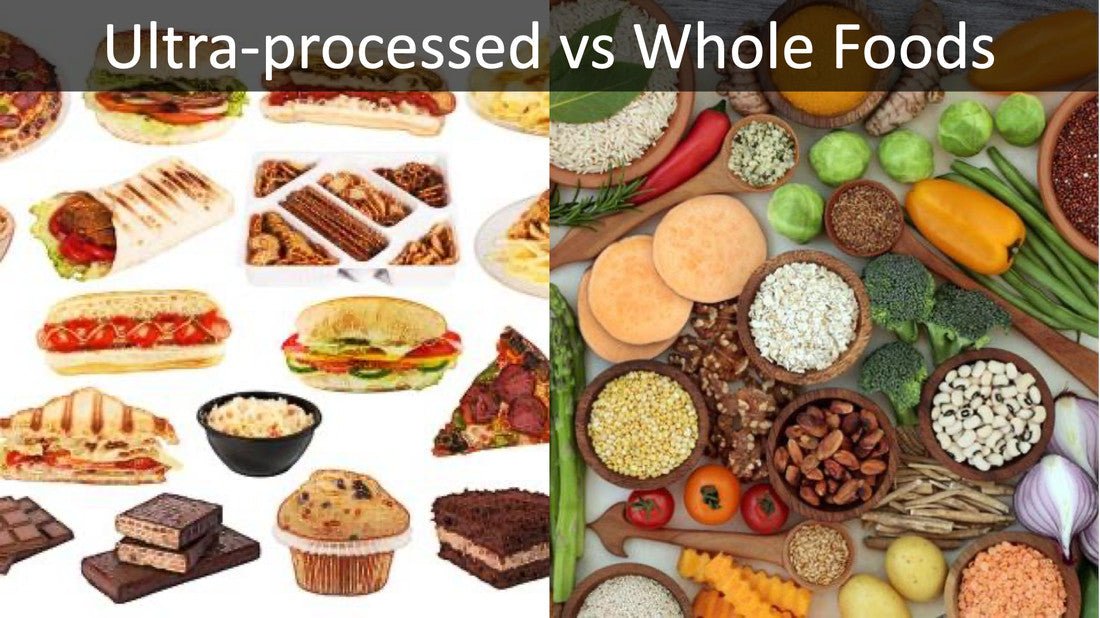
Natural, whole, processed, refined, enriched, what does that actually mean in food declaration?
Share

Foods that have been processed in some way or changed are considered “refined.” Since one or more of their edible components is removed in the processing, these foods are technically no longer considered “natural.”
One reason this is troublesome is because nutrients are lost in the processing. For example, when an orange is processed into orange juice, the membrane and pulp are removed. Vitamins, minerals, and fiber are also removed when you do not eat a whole orange. Orange juice is also higher in calories since one cup of orange juice is equivalent to about four oranges. Most people cannot eat four oranges in one sitting, in addition to eating the rest of their breakfast (when orange juice is typically enjoyed)!
Another problem with refined foods is that additional ingredients can be added, which aren’t food and aren’t healthy. Take whole wheat, for example, which is often altered into “enriched wheat flour.” All of the intrinsic vitamins and minerals in the wheat are stripped out and then about half that number of vitamins and minerals are added back in the form of chemical “nutrients.” This is what is called “enriching” the flour. The chemical “nutrients” are not as well-absorbed in our bodies as the inherent nutrients are. Additionally, unless the flour says “whole wheat,” bleach has been used to whiten the flour. Yes, chlorine bleach – like what you use on your white clothes. I can’t imagine that it can be “washed out” of flour, can you?
An additional issue with refining foods is that the food might be altered in such a way that causes health problems. For example, since refined grains are quickly broken down into simple sugars during digestion, they are promptly absorbed into your bloodstream. As a result, if you are eating this food without protein or fat, such as eating a plain bagel, your blood sugar levels will usually spike and then crash, draining your energy and leaving you moody and tired. When this happens over and over, your risk of becoming diabetic is increased; and, if you are diabetic, this increases your risk for complications.
Finally, when we eat a food that is refined, we frequently crave the missing parts, which can lead to overeating of that refined food since it is not as satisfying as the whole food it represents. For example, a one pound bag of potato chip (a large bag) can have around 10 to 12 medium potatoes. How easy it is to eat at least a half of bag of potato chips in one sitting? But, would you eat five potatoes in one sitting?
Or, alternatively, when you eat only a highly-sweetened, low-fat yogurt for breakfast, you shouldn’t be surprised when you walk by those doughnuts at work and grab one. Or two. This is to replace the fat your body is craving from the yogurt.
So, what is the solution? Eating whole foods that are altered as little as possible. Shop the outer perimeter of the supermarket or at the farmer’s market. Gather up the colorful fruits and vegetables found there. Discover new methods to prepare them. Get the raw meats instead of the processed ones. Learn new cooking techniques. Take pleasure in seeds and nuts and herbs and spices. Enjoy the adventure learning how to prepare whole foods.
The benefit of these whole foods is your body will be provided with essential enzymes, vitamins and minerals better protecting you against the assaults in our environment and stressful lives. Win-win.
content source:
